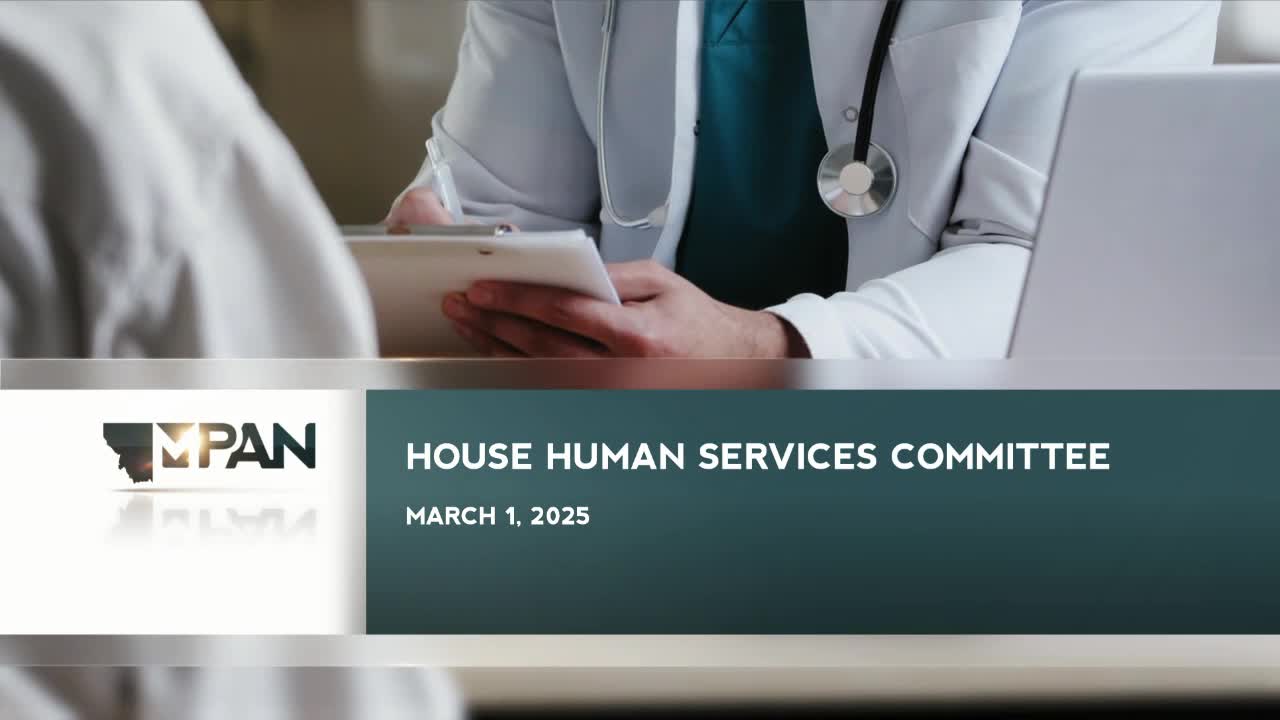Montana hearing on House Bill 783: sponsors and medical groups urge insurer coverage for GLP‑1 weight‑loss drugs; insurers warn of large fiscal impact
Get AI-powered insights, summaries, and transcripts
Subscribe
Summary
Representative Scott Rosenzweig and physician and advocacy witnesses urged coverage of GLP‑1 drugs for a narrowly defined group of patients with class‑3 obesity and PCOS, while insurer witnesses warned the mandate would substantially increase premiums and state reimbursement costs.
Representative Scott Rosenzweig (R‑House District 57) opened a hearing on House Bill 783, asking the committee to require insurers to cover glucagon‑like peptide‑1 (GLP‑1) weight‑loss drugs like Ozempic and Wegovy for patients with “type 3” or class‑3 obesity (body‑mass index of 40 or more) and certain severe weight‑related conditions, and to include polycystic ovary syndrome (PCOS) as a qualifying diagnosis.
Rosenzweig told the committee the bill is intended to allow doctors to prescribe GLP‑1s before patients develop type‑2 diabetes. “These drugs are expensive,” he said, and he cited widely varying prices between countries; he told members a fiscal note was still being worked out and “looks like it will cost the state somewhere between $1 and $1,500,000 a year” under current drafting.
Representative Jane Gillette, a Republican who said she rarely supports benefit expansion, urged the committee to view the bill as narrowly tailored to a small population. “It is a very small population… probably about 5 to 7 percent of the population qualify for this,” she said, arguing the benefit could be life changing for qualifying patients.
The Montana Medical Association testified as a proponent. Jean Branscum, CEO, said physicians are best placed to determine medical necessity and characterized the policy as “pay now or pay later” for chronic disease prevention.
Opponents included government‑relations and actuarial speakers for the state’s insurers. Drew Cziok (Blue Cross Blue Shield of Montana) said insurer modeling projects large costs to be borne through premiums and, for certain plans, state defrayal. He reported actuarial estimates that, under broad reading of the draft bill, coverage could drive tens of millions in annual plan costs and told the committee his company’s estimate for individual and small group plans was about $47,000,000 per year. Bruce Spencer of Mountain Health Co‑op said his carrier’s estimate of the state defrayal would be about $8,000,000. Both urged narrowing the bill’s medical‑necessity language.
Amy Jenks, administrator for the Department of Administration’s Health Care and Benefits Division, said the state employee plan filed a fiscal note estimating roughly $4,500,000 in plan cost without amendments and that a sponsor‑proposed limit (restricting coverage to BMI ≥40 and PCOS) would lower the state plan cost to about $1,300,000.
Committee members pressed for specific fiscal options and asked the sponsor and supporters to obtain narrowed cost estimates. Representative Rosenzweig and Representative Gillette said they would work on drafting an amendment that would limit the bill to class‑3 obesity and PCOS; the sponsor said a narrowed drafting would reduce the fiscal exposure. The committee later removed House Bill 783 from that day’s executive action list pending revised fiscal materials.
Ending: The hearing closed without a committee vote; sponsors and insurers agreed to pursue narrower language and updated fiscal notes before the bill returns for executive action.
